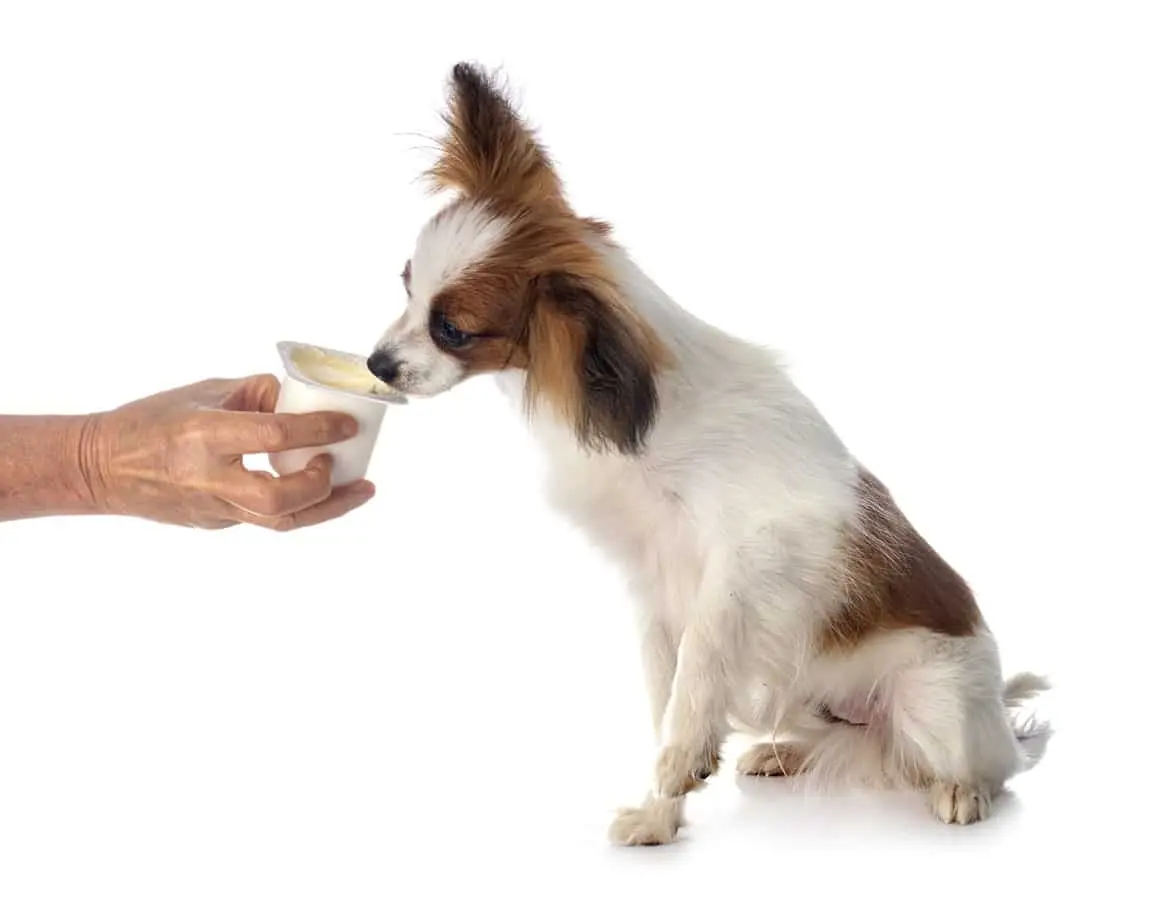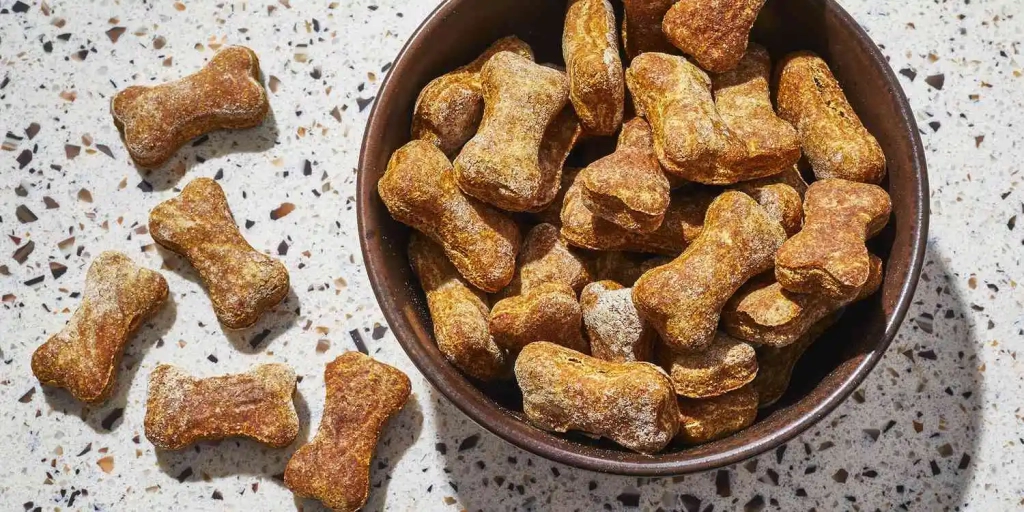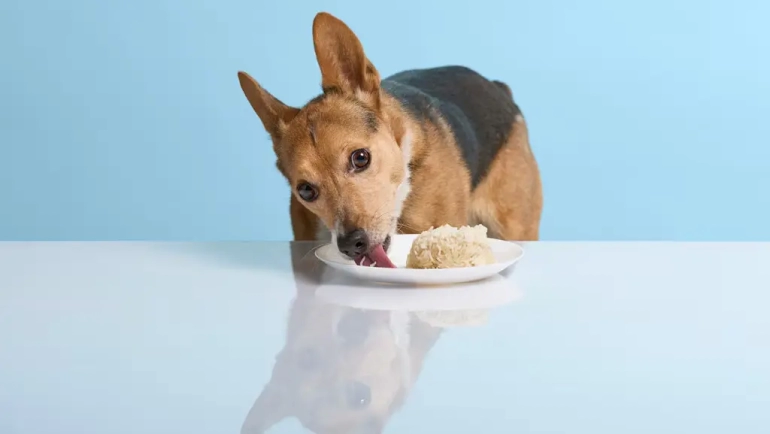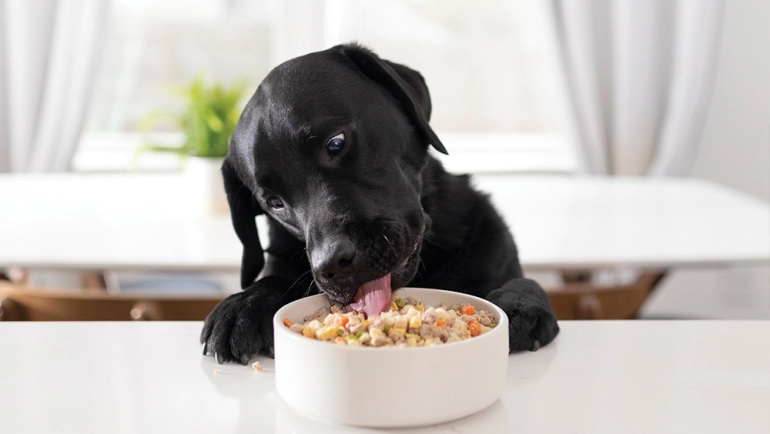108Views

Dogs Can Eat Yogurt? Yes, But…
Dogs, our furry companions with soulful eyes and wagging tails, often beg for a taste of whatever we’re enjoying.
And who can resist those puppy-dog eyes? But can Fido safely indulge in a spoonful of yogurt, or is it best left off the menu? Buckle up, dog lovers, because we’re diving into the world of canine yogurt consumption.
Yogurt: A Nutritious Treat, But Not for All Pups
Plain, unsweetened yogurt offers a smorgasbord of potential benefits for some dogs. It’s packed with:
- Protein: Essential for building and repairing tissues.
- Calcium: Crucial for strong bones and teeth.
- Probiotics: Live bacteria that aid digestion and gut health.
However, not all dogs are created equal when it comes to yogurt. Here’s the scoop on who can (and who can’t) partake:
The Green Light for Some Pup
- Lactose-tolerant pups: This is key. Many dogs lack the enzyme needed to digest lactose (milk sugar), leading to digestive upset. Opt for plain, Greek yogurt, as it contains less lactose than regular yogurt.
- Moderation is key: Even for tolerant pups, yogurt is a treat, not a staple. Start with a small amount (teaspoon for small dogs, tablespoon for larger ones) and monitor their reaction.
- Skip the extras: Avoid yogurts with added sugars, artificial sweeteners, or xylitol (toxic to dogs). Fruits like grapes and raisins can also be harmful.
Red Flag: When Yogurt is a No-Go
- Lactose-intolerant dogs: These pups will experience symptoms like vomiting, diarrhea, and gas after consuming yogurt. Stick to alternative treats.
- Puppies under 8 weeks: Their digestive systems are still developing, and yogurt can be too much for them to handle.
- Dogs with health conditions: Consult your veterinarian before introducing yogurt, especially if your dog has diabetes, pancreatitis, or other sensitivities.
Read Also: The Right Rice Amount To Feed Your Dog For Diarrhea
Creative Yogurt Concoctions: Fun Twists for Tail-Wagging Treats

For approved doggy yogurt fans, here are some flavorful, healthy ideas:
- Frozen yogurt bites: Mix unsweetened yogurt with mashed banana or blueberries and freeze in ice cube trays for a refreshing summer treat.
- Lickable yogurt puzzle toys: Fill a Kong toy with frozen yogurt and let your pup work to lick it out, providing mental stimulation and keeping them cool.
- Homemade dog biscuits: Bake healthy dog biscuits with plain yogurt as a binding agent and add dog-safe fruits or vegetables for extra flavor.
Remember: Every dog is an individual, so consult your veterinarian before introducing any new food, including yogurt, to their diet. By understanding your pup’s specific needs and offering yogurt responsibly, you can turn it into a delightful and beneficial treat for your furry best friend.
How Much Yogurt Should I Feed My Dog?
While some dogs can enjoy the occasional spoonful of yogurt, the amount they should eat depends on several factors:
1. Lactose Tolerance:
- Lactose-intolerant dogs: These dogs shouldn’t have yogurt at all, as it can cause digestive upset like vomiting, diarrhea, and gas.
- Lactose-tolerant dogs: Even for these pups, moderation is key. Yogurt is a treat, not a dietary staple.
2. Dog’s Size:
- Small dogs: Start with a teaspoon (5ml).
- Medium dogs: A tablespoon (15ml) is a good starting point.
- Large dogs: Up to 2 tablespoons (30ml) might be okay.
3. Individual Needs:
- Age: Puppies under 8 weeks shouldn’t have yogurt due to their developing digestive systems.
- Health conditions: Consult your vet if your dog has diabetes, pancreatitis, or other sensitivities before offering yogurt.
4. Yogurt Type:
- Plain, Greek yogurt: This is the best option as it contains less lactose than regular yogurt.
- Skip yogurt with: Added sugars, artificial sweeteners, xylitol (toxic to dogs), or fruits like grapes and raisins.
General Rule of Thumb:
- 10% rule: Limit yogurt to no more than 10% of your dog’s daily calorie intake.
- Always monitor: Watch for any signs of discomfort after feeding yogurt.
Remember: Consult your veterinarian before introducing any new food, including yogurt, to your dog’s diet. They can advise on the appropriate amount based on your dog’s individual needs and health.


